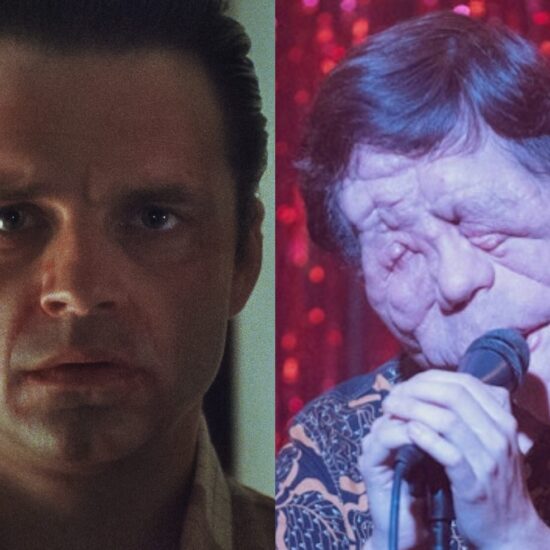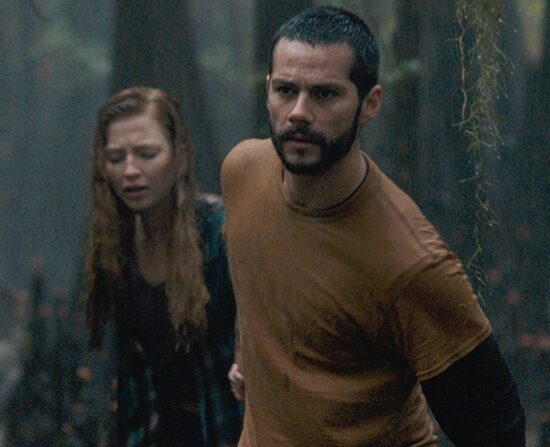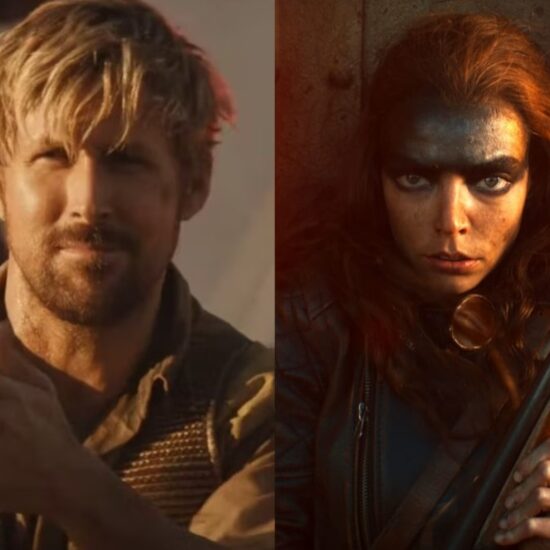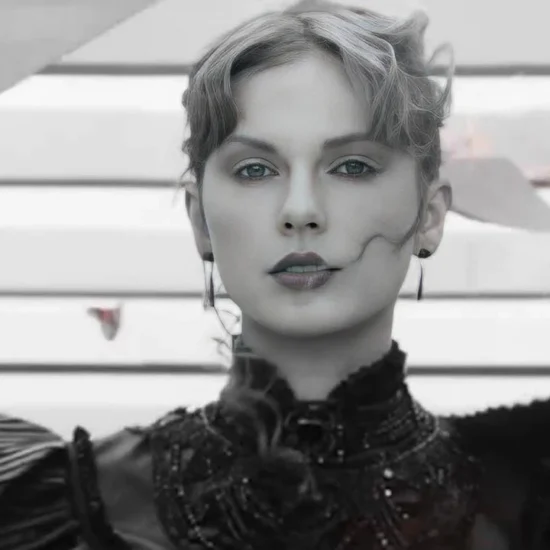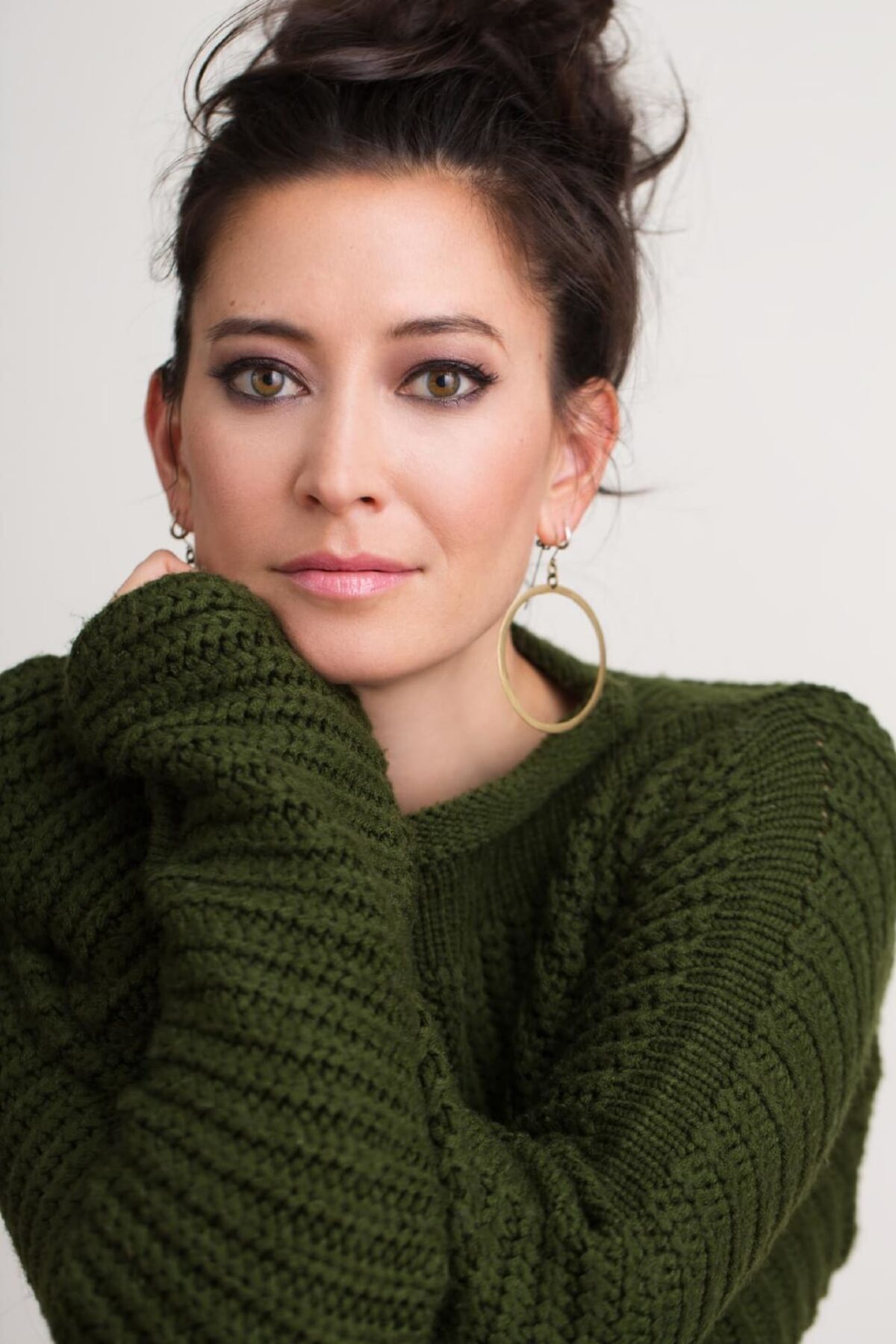
Award-winning composer Sherri Chung has been recognized for her work on various television shows and movies. Involved in CW Network shows such as Arrow, Batwoman, Kung Fu, and Riverdale, Sherri Chung has also worked on MAX’s Gremlins: Secrets of the Mogwai, Peacock’s Based On A True Story, Sherri Chung has worked toward creating authentic and exciting scores for different projects, culminating in an impressive list of credits under her name. Sherri Chung discusses the research and thought that goes into composing music.
Culturess: How do you work toward making the music you compose authentic?
Sherri Chung: There’s a project I just completed called Gremlins: Secrets of the Mogwai, and it’s an animated prequel series to the original Gremlins movies directed by Joe Dante, scored by Jerry Goldsmith, and one of the sort of assignments or tasks, if you will, in that project was to, part of where the show takes place is in 1920s in Shang Hai, so one of the things that they wanted to do was make sure the music was sounding at least a little in some cases, set in that time.
So, I was using instrumentation. I was using an erhu and, some bamboo flutes, some percussion. Things that were specifically Chinese. There were even places where we had to do some songs that were sort of in the 1920s style and feel in that time. So I guess in some ways, if that’s what you mean by authentic, I actually had to do some research to make sure I was being as close to the time period as possible or at least having that influence in there. So sometimes it takes some research to do.
Culturess: Is there a difference in composing music for films versus television?
Sherri Chung: I do think that there are some differences in some ways between television music and composing for film. My process isn’t any different in terms of creating themes for characters or places or sounds. Certainly, I think some of the differences lie more in the time constraints. Sometimes episodic moves very, very quickly, and once an episode is done it’s finished. You can’t go back and revisit it. Whereas in a film you can work on the entire film and keep working, go back from beginning to end, go back to the beginning, and skip to the end again. You get to see the entire arc in a film, and I think that in some cases that makes it, I don’t know if easier is the right word, to create themes.
But you know that your themes are going to work because you can place them in any part of the film in the timeline and when you work an episodic you don’t oftentimes get to see the very end of the show and then go back and retroactivity re-fit or re-outfit anything. So if you wrote a theme in the first episode, it needs to be a solid theme where it can go not only until the last episode of the season but it could go on for say multiple seasons, maybe six or seven years, like the entire series. So I do think there are differences but I wouldn’t say that my process is any different.
Culturess: How did you approach composing music for Based On A True Story?
Sherri Chung: The approach for composing the music for Based On A True Story was actually a good challenge. It was a challenging one but it was one that I enjoyed creatively. The tone of the show is a comedic thriller so you’re mixing funny with something that’s pretty gross and pretty horrific. I think that those polar opposites in visuals and in feeling is sometimes difficult to translate those to music as well. Sometimes it was polar opposites in the music.
But it was a lot of back and forth with the show’s creator and showrunner Craig Rosenberg. We had a lot of conversations. We had a lot of meetings about what was working, what felt too funny, what didn’t feel funny enough, what didn’t feel horrific enough. So there was a lot of talking about it, a lot of playing him the music that I was writing, then us dissecting it and going through it and working through a lot of the aspects of it. It was a much more involved process than some of the other shows that I’ve worked on but it was very rewarding.
Culturess: Is there a difference in how you handle scoring a series based on if you worked on it for a few months compared to a few years?
Sherri Chung: I don’t know if it’s that the process becomes different but I will say this. On a new project, let’s say if it’s an episodic project, and I’m working on it for however long the first season is, there’s always, for me anyway, anything that’s a new season of something comes a little bit slower because themes are still getting created. Sounds are still being worked out. The sound pallet is still being figured out. The characters, even the actors are still learning the show. I’m learning the show. I think the writers are learning the show. I think that if a show goes on for a second season or a third or fourth or that kind of thing obviously there’s new characters and new storylines and there’s new themes but I think everyone sort of gets into a rhythm.
I think in some cases, I have almost more fun because then I can kind of play a little bit more and I think less about the ‘Oh, there has to be this consistency. I have to figure this out.’ It’s like nah the consistency is already there. It’s a world that we already exist in. Now it’s like this is something that the music sounds like as opposed to now I have to figure out what it’s supposed to sound like. So I think the longer I spend working on a project the more fun it can be.
Culturess: Has there ever been a score that was the most challenging to work on?
Sherri Chung: It’s very true. They all present their challenges. I think that Gremlins: Secrets of the Mogwai has been a challenge. But I want to be clear that when we say challenge for me that’s not always a bad thing. Sometimes the challenges really help me grow as a composer and I can say that with Gremlins, I really do feel like I grew as a composer.
I think because the music was such a much more of a muscular orchestral score and I hadn’t done that much music orchestrally and done it live for such a long time. I worked on that project for three years and I hadn’t done that at that pace and that kind of music, animation music which was fully orchestral. So it was a challenge but it was a good one. It was really creatively fulfilling. It was probably been one of my favorite experiences probably for that reason, the most challenging. Or maybe vice versa. It was the most challenging and for that reason was my favorite or one of my favorites.
Culturess: In the three years that you were working on it, what went into composing all the music?
Sherri Chung: A lot of time. And like I said with Gremlins: Secrets of the Mogwai there was some research involved. If any of your listeners, or your readers, have watched the show because it’s for young audiences but it’s also for older sort of nostalgic adults as well especially if you’re fans of Gremlins. It’s like when you watch a show every episode was its own adventure from start to finish. With that, I was creating themes for each of the characters that we were just meeting just for that episode. Sometimes they came back but most of the time it was just for that episode. So I think what goes into that is you have to create something special and unique for each episode for each of those adventures that’s happening.
In episode four, they go to a tea house and it’s sort of this seemingly haunted strange happenings tea house and they’re trying to figure out what’s going on so there was a sound that was created specifically for Meng Po, specifically for her tea house, and specifically for the happenings that went on in the tea house. That was very different from say, the next episode that was about Jiangshi, which are these sort of Chinese mythical, legendary zombies, essentially, and there was a very different sound for them. So I think what went into each one of them was just to get into the story and really create something that was unique to just that episode while still incorporating the themes and the musical pallet that was part of the show in its entirety.
Culturess: You composed music for Based On A True Story, Gremlins: Secrets of the Mogwai, and Riverdale. How did you get into the mindset of when you’re working on such different projects?
Sherri Chung: Yeah, I think every project, for me, I’m very visually influenced. So they all look different and of course, the characters look different and stories feel different. I think if I worked on projects that were too much alike that would be even more challenging because it would feel like ‘Oh, I’m just doing another version of this type of score.’ But working on different projects, for me, it’s like there’s almost no overlap. There was gonna be no way for me to mistake a Riverdale score with a Gremlins score or a Riverdale episode with a Gremlins episode. But I do think that a lot of that comes from establishing a specific sound from the beginning of the project. Even if the sound evolves and grows which all sounds do, and they should, I think.
At least on the projects that I’ve done, I feel as though they should have grown and evolved as the characters have expanded and grown and evolved. But I think that a lot of that work happens at the very beginning when you’re establishing those parameters. You’re establishing boundaries of your playground, if you will, and from there you can kind of build your different toys in the playground and use them to create different worlds that each of these stories live in. So if that groundwork is properly and effectively laid then it becomes a very different show or a very different project as you move from each one to each one even if you’re working on them simultaneously.
Culturess: What is your favorite type of score to work on?
Sherri Chung: That’s a hard one, I think for the same reason. If I work on something that was the same as something else, like if it was always romcoms or if it was always animation or if it was always action adventure or something like that I think that I would get bored. I think that I like to work on different types of projects. But I think lately my favorites have been action adventure, fantasy, I think those have been some of my favorites to work on. But I really do like a lot of different kinds.
There’s maybe only one kind I don’t like. Maybe that’s better to say. The only type of project I don’t particularly like is cartoons or kid’s shows, which I know I did Gremlins: Secrets of the Mogwai, I know I did an animation. But to me that was geared toward an older audience or even a younger audience and nostalgic adults so there was a lot of adult angles, an adult spin on it almost. I think the ones I had the hardest was the ones where the sound keeps changing, it just has to change on the turn of a dime, I think the stuff like that is a little frenetic for me.
Culturess: What is your role as the Co-Governor of the Music Branch of the Academy?
Sherri Chung: I am a Co-Governor of the Music Branch of the Television Academy. So that’s the Academy that hands out the Emmys and deals with episodic television, it used to be just episodic but now television kinda means anything, well anything that’s on streaming. So even movies that don’t go into theaters basically. So the Television Academy is just dealing with all episodic and streaming-only content.
My role as Co-Governor is really to be, I think like a lot of elected positions, it’s really to be the voice of the rest of my peer group. The peer group would be composers, songwriters and lyricists, music directors, and music supervisors who are also in the television industry. It’s to really just navigate our way through all the changing types of content you can have. We have AI now as like a new topic obviously so we, myself and the other sixty-one governors, of the Television Academy, meet together and we talk about revising rules for the Emmys. Also just putting together different ways to outreach to our members as well and be a reference to them.
Culturess: What would you say is the significance of the Composers’ Diversity Collective?
Sherri Chung: I’m a member but I’m not on their board so I don’t want to misspeak about the mission statement so I’ll try to just speak very carefully of what I know. But the Composer Diversity Collective is a group of composers that really is celebrating composers from diverse backgrounds. That includes anything from gender to ethnicity. I think that it’s a really great group of composers which I’m very honored to be a part of. We meet and get together and talk about composing.
We don’t really talk about the diversity aspect of it. I mean there is some of that too but first, we are composers and we all wanna be seen as composers, and not just diverse composers or composers that identify as this, this, or this. So I think it’s a really great way for composers who, in the past, have felt, or maybe currently feel, underrepresented to get together and share ideas and share networking and referencing opportunities and possibilities. I think that it’s one of the many great conglomerates of composers and a way to seek other individuals that we identify with and just share what we do as a profession.










